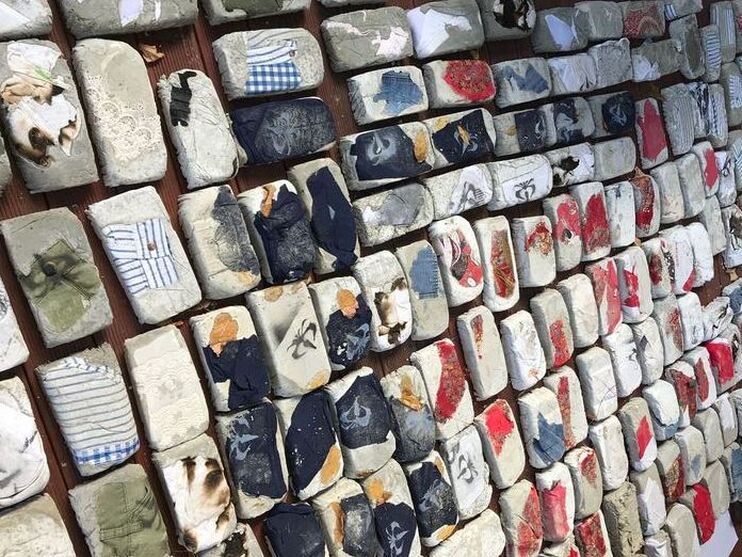|
|
|
‘We know that they have sentiment [against] Chinese. The May 1998 fall is just ... an event that compounded whatever my mom ... whatever my parents say is really true.’ (Winarnita et al., 2018).
A recent interest in the growing Chinese-Indonesian diaspora has drawn attention to the powerful experiences of many women who were forced to leave Indonesia during the May 1998 riots. To avoid being raped, many Chinese-Indonesian families sent their daughters out of country to try and ensure their safety. Thousands of these women remain abroad, living as exiles in other countries. Our research on Chinese-Indonesian women in Singapore and Australia, as discussed in our Identities article, 'Narratives of exile twenty years on: long-term impacts of Indonesia’s 1998 violence on transnational Chinese-Indonesian women', uncovered many stories of exile and suffering.
This was the case for Melbourne-based Teresia, now in her early thirties, whose experience of exile also made her delay marriage and childrearing. Teresia’s middle-class family had helped her flee Indonesia in early 1999 to be an international high school student in Australia, and she remained indebted to them, particularly as her parents’ business closed down.
After graduation, she enrolled in medical school, again with financial help from more affluent relatives and family friends. She framed her departure as partially due to education but mostly due to ‘fear for [her] safety’. 1998 was a ‘very tumultuous time’, which made her move necessary and ‘right’. Her family in Jakarta lived in fear and close proximity to the violence, as Teresia described: ‘It was all in front of us … the riot just went through in front of our real estate area’. Two decades on, the conditions of her departure continued to impact her attitude towards marriage. Her medical career allowed her to sponsor the migration of her Indonesia-based family. Moving her family away permanently from racial tensions in Indonesia was more important than marriage and children, said Teresia. For Singapore-based Michelle, the 1998 riots also ruptured her life history narrative; her family relocated from Jakarta to her father’s home on a rural island off of Java to protect Michelle from possible rape and assault. Her forced confinement as a teenager in her low-income family’s natal home led her to want to be an adventurous adult. She studied diligently and sought out opportunities for education and training, which led her to Jakarta and Taiwan before she got a serendipitous job offer in Singapore. Nevertheless, the high mobility and instability in Michelle’s life that were set in motion in 1998 continued. Michelle and her Indonesian husband remain unsure if they will ever get permanent residency in Singapore. It also meant what Michelle calls a significant ‘sacrifice’ to delay childbirth well past the time she and her husband wanted to be having children together; this was due to their uncertain status with short-term work visas and delays in processing residency applications, along with lack of options around returning to Indonesia. In-depth interviews conducted in 2016 with Chinese-Indonesian women currently living in Singapore and Australia uncovered the long-term effects on families of female members’ experiences of exile. In contrast to stereotypes of overseas Chinese-Indonesians as members of an affluent community, Chinese-Indonesian women’s experiences, as illustrated in Teresia’s and Michelle’s stories, are also that of exiles. Respondents describe how the events of 1998 restricted their choice of residence and possible return. Moreover, the long-term effects of political violence include strained family ties, as well as difficulties in women’s marital, reproductive and childrearing practices. Interviewees described how they come to understand who they are and how to maintain family relations in their effort to overcome long-term difficulties in their lives. Therefore, more discussion is needed towards understanding women’s specific political experiences of exile, and the long-term impacts of political violence on their family relations such as those of Chinese-Indonesian women and other women in exile. Reference: Winarnita, M., C. Chan & L. Butt. (2018). Narratives of exile twenty years on: long-term impacts of Indonesia’s 1998 violence on transnational Chinese-Indonesian women. Identities: Global Studies in Culture and Power. DOI: 10.1080/1070289X.2018.1537639.
Blog post by Monika Winarnita, University of Victoria, Canada; Carol Chan; University of Victoria, Canada; and Leslie Butt, University of Victoria, Canada
Read the full article: Winarnita, Monika; Chan, Carol & Butt, Leslie. Narratives of exile twenty years on: long-term impacts of Indonesia’s 1998 violence on transnational Chinese-Indonesian women. Identities: Global Studies in Culture and Power. DOI: 10.1080/1070289X.2018.1537639
0 Comments
Your comment will be posted after it is approved.
Leave a Reply. |
|
Explore Identities at tandfonline.com/GIDE |
|
The views and opinions expressed on The Identities Blog are solely those of the original blog post authors, and not of the journal, Taylor & Francis Group or the University of Glasgow.

